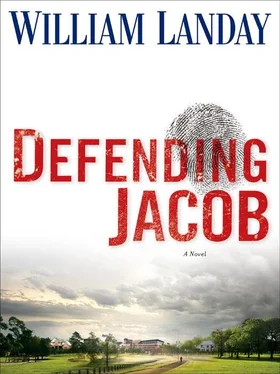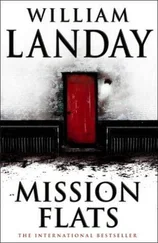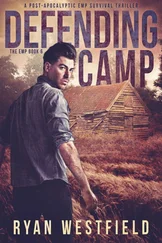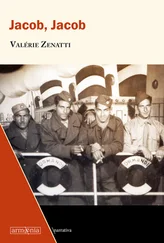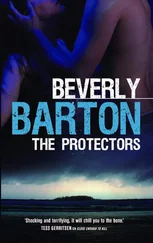William Landay - Defending Jacob
Здесь есть возможность читать онлайн «William Landay - Defending Jacob» весь текст электронной книги совершенно бесплатно (целиком полную версию без сокращений). В некоторых случаях можно слушать аудио, скачать через торрент в формате fb2 и присутствует краткое содержание. Жанр: Криминальный детектив, на английском языке. Описание произведения, (предисловие) а так же отзывы посетителей доступны на портале библиотеки ЛибКат.
- Название:Defending Jacob
- Автор:
- Жанр:
- Год:неизвестен
- ISBN:нет данных
- Рейтинг книги:2.33 / 5. Голосов: 3
-
Избранное:Добавить в избранное
- Отзывы:
-
Ваша оценка:
- 40
- 1
- 2
- 3
- 4
- 5
Defending Jacob: краткое содержание, описание и аннотация
Предлагаем к чтению аннотацию, описание, краткое содержание или предисловие (зависит от того, что написал сам автор книги «Defending Jacob»). Если вы не нашли необходимую информацию о книге — напишите в комментариях, мы постараемся отыскать её.
Defending Jacob — читать онлайн бесплатно полную книгу (весь текст) целиком
Ниже представлен текст книги, разбитый по страницам. Система сохранения места последней прочитанной страницы, позволяет с удобством читать онлайн бесплатно книгу «Defending Jacob», без необходимости каждый раз заново искать на чём Вы остановились. Поставьте закладку, и сможете в любой момент перейти на страницу, на которой закончили чтение.
Интервал:
Закладка:
“Did you inform the district attorney that you had a conflict of interest?”
“No.”
“Why not?”
“Because I didn’t have one.”
“Wasn’t your son, Jacob, a classmate of the dead boy?”
“Yes, but I didn’t know the victim. Jacob didn’t know him either, as far as I was aware. I’d never even heard the dead boy’s name.”
“You did not know the kid. All right. But you did know that he and your son were in the same grade at the same middle school in the same town?”
“Yes.”
“And you still didn’t think you were conflicted out? You didn’t think your objectivity might be called into question?”
“No. Of course not.”
“Even in hindsight? You insist, you- Even in hindsight, you still don’t feel the circumstances gave even the appearance of a conflict?”
“No, there was nothing improper about it. There was nothing even unusual about it. The fact that I lived in the town where the murder happened? That was a good thing. In smaller counties, the prosecutor often lives in the community where a crime happens, he often knows the people affected by it. So what? So he wants to catch the murderer even more? That’s not a conflict of interest. Look, the bottom line is, I have a conflict with all murderers. That’s my job. This was a horrible, horrible crime; it was my job to do something about it. I was determined to do just that.”
“Okay.” Logiudice lowered his eyes to his pad. No sense attacking the witness so early in his testimony. He would come back to this point later in the day, no doubt, when I was tired. For now, best to keep the temperature down.
“You understand your Fifth Amendment rights?”
“Of course.”
“And you have waived them?”
“Apparently. I’m here. I’m talking.”
Titters from the grand jury.
Logiudice laid down his pad, and with it he seemed to set aside his game plan for a moment. “Mr. Barber-Andy-could I just ask you something: why not invoke them? Why not remain silent?” The next sentence he left unsaid: That’s what I would do.
I thought for a moment that this was a tactic, a bit of playacting. But Logiudice seemed to mean it. He was worried I was up to something. He did not want to be tricked, to look like a fool.
I said, “I have no desire to remain silent. I want the truth to come out.”
“No matter what?”
“I believe in the system, same as you, same as everyone here.”
Now, this was not exactly true. I do not believe in the court system, at least I do not think it is especially good at finding the truth. No lawyer does. We have all seen too many mistakes, too many bad results. A jury verdict is just a guess-a well-intentioned guess, generally, but you simply cannot tell fact from fiction by taking a vote. And yet, despite all that, I do believe in the power of the ritual. I believe in the religious symbolism, the black robes, the marble-columned courthouses like Greek temples. When we hold a trial, we are saying a mass. We are praying together to do what is right and to be protected from danger, and that is worth doing whether or not our prayers are actually heard.
Of course, Logiudice did not go in for that sort of solemn bullshit. He lived in the lawyer’s binary world, guilty or not guilty, and he was determined to keep me pinned there.
“You believe in the system, do you?” he sniffed. “All right, Andy, let’s get back to it, then. We’ll let the system do its work.” He gave the jury a knowing, smart-ass look.
Attaboy, Neal. Don’t let the witness jump into bed with the jury- you jump into bed with the jury. Jump in there and snuggle right up beside them under the blanket and leave the witness out in the cold. I smirked. I would have stood up and applauded if I’d been allowed to, because I taught him to do precisely this. Why deny myself a little fatherly pride? I must not have been all bad-I turned Neal Logiudice into a half-decent lawyer, after all.
“So go on already,” I said, nuzzling the jury’s neck. “Stop screwing around and get on with it, Neal.”
He gave me a look, then picked up his yellow pad again and scanned it, looking for his place. I could practically read the thought spelled out across his forehead: lure, trap, fuck. “Okay,” he said, “let’s pick it up at the aftermath of the murder.”
2
April 2007: twelve months earlier.
W hen the Rifkins opened their home for the shiva, the Jewish period of mourning, it seemed the whole town came. The family would not be allowed to mourn in private. The boy’s murder was a public event; the grieving would be as well. The house was so full that when the murmur of conversation occasionally swelled, the whole thing began to feel awkwardly like a party, until the crowd lowered its voice as one, as if an invisible volume knob were being turned.
I made apologetic faces as I moved through this crowd, repeating “Excuse me,” turning this way and that to shuffle by.
People stared with curious expressions. Someone said, “That’s him, that’s Andy Barber,” but I did not stop. We were four days past the murder now, and everyone knew I was handling the case. They wanted to ask about it, naturally, about suspects and clues and all that, but they did not dare. For the moment, the details of the investigation did not matter, only the raw fact that an innocent kid was dead.
Murdered! The news sucker-punched them. Newton had no crime to speak of. What the locals knew about violence necessarily came from news reports and TV shows. They had supposed that violent crime was limited to the city, to an underclass of urban hillbillies. They were wrong about that, of course, but they were not fools and they would not have been so shocked by the murder of an adult. What made the Rifkin murder so profane was that it involved one of the town’s children. It was a violation of Newton’s self-image. For a while a sign had stood in Newton Centre declaring the place “A Community of Families, A Family of Communities,” and you often heard it repeated that Newton was “a good place to raise kids.” Which indeed it was. It brimmed with test-prep centers and after-school tutors, karate dojos and Saturday soccer leagues. The town’s young parents especially prized this idea of Newton as a child’s paradise. Many of them had left the hip, sophisticated city to move here. They had accepted massive expenses, stultifying monotony, and the queasy disappointment of settling for a conventional life. To these ambivalent residents, the whole suburban project made sense only because it was “a good place to raise kids.” They had staked everything on it.
Moving from room to room, I passed one tribe after another. The kids, the dead boy’s friends, had crowded into a small den at the front of the house. They talked softly, stared. One girl’s mascara was smeared with tears. My own son, Jacob, sat in a low chair, lank and gangly, apart from the others. He gazed into his cell phone screen, uninterested in the conversations around him.
The grief-stunned family was next door in the living room, old grandmas, baby cousins.
In the kitchen, finally, were the parents of the kids who’d gone through the Newton schools with Ben Rifkin. This was our crowd. We had known one another since our kids showed up for the first day of kindergarten eight years earlier. We had stood together at a thousand morning drop-offs and afternoon pickups, endless soccer games and school fund-raisers and one memorable production of Twelve Angry Men. Still, a few close friendships aside, we did not know one another all that well. There was a camaraderie among us, certainly, but no real connection. Most of these acquaintanceships would not survive our kids’ graduation from high school. But in those first few days after Ben Rifkin’s murder, we felt an illusion of closeness. It was as if we had all suddenly been revealed to one another.
Читать дальшеИнтервал:
Закладка:
Похожие книги на «Defending Jacob»
Представляем Вашему вниманию похожие книги на «Defending Jacob» списком для выбора. Мы отобрали схожую по названию и смыслу литературу в надежде предоставить читателям больше вариантов отыскать новые, интересные, ещё непрочитанные произведения.
Обсуждение, отзывы о книге «Defending Jacob» и просто собственные мнения читателей. Оставьте ваши комментарии, напишите, что Вы думаете о произведении, его смысле или главных героях. Укажите что конкретно понравилось, а что нет, и почему Вы так считаете.
